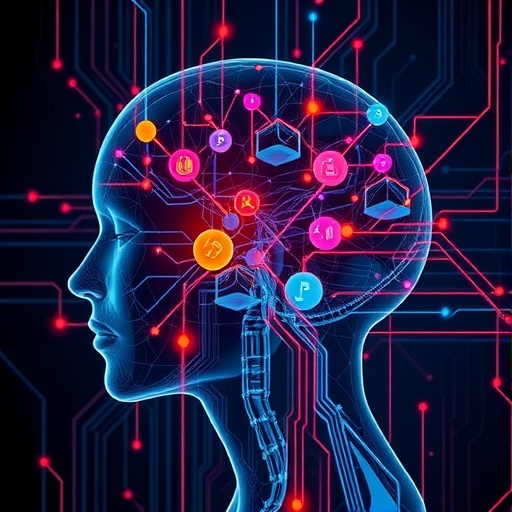As the integration of artificial intelligence (AI) into complex decision-making environments accelerates, the need to develop systems that not only process vast quantities of data but also support human decision-making becomes paramount. This relationship holds immense potential, especially in scenarios where quick, decisive action is necessary, such as in disaster response situations. The distinct yet complementary strengths of AI and human intelligence present an opportunity to harness the capabilities of both domains, ultimately leading to better outcomes in high-stakes scenarios.
AI’s profound ability to digest large datasets and uncover statistical patterns is remarkable. It can sift through terabytes of information in mere moments, identifying trends that might take humans weeks or even months to detect. This capability is particularly crucial in emergencies, where timely data interpretation can significantly influence the course of action. However, while AI excels at optimizing defined objectives, it operates based on algorithms and programming, lacking the innate ability to account for uncertainty or moral dilemmas inherently faced by humans.
On the other hand, humans bring to the table a unique set of skills. Their capacity to navigate uncertainty, appreciate novel situations, and engage in complex interpersonal interactions is vital, especially in environments where human lives are at stake. The innate human ability to weigh ethical considerations and make moral judgments under pressure presents a stark contrast to AI’s purely data-driven approach. Therefore, the synergy between human intuition and AI’s computational prowess is not only beneficial but essential for effective decision-making amidst chaos.
Recent advancements in cognitive AI are paving the way for better alignment between human and AI capabilities. Cognitive AI aims to mimic human cognitive processes, enabling machines to adapt their learning and decision-making in ways that reflect human reasoning. By focusing on cognitive models that incorporate human-like thought processes, researchers are working towards AI systems that can collaborate more effectively with human decision-makers, instead of simply functioning as autonomous agents. This shift in perspective could radically alter the landscape of emergency management and other domains requiring rapid, complex decision-making.
Understanding the elements essential for cognitive AI is critical in realizing effective human–AI partnerships. These elements include the ability to understand context, recognize emotional cues, and adapt decision strategies dynamically in response to changing situations. By incorporating these features, cognitive AI can support human operators by providing relevant data and insights while allowing humans to retain control over the final decisions. This move towards collaboration could enhance the effectiveness of responses in urgent situations, aligning operational strategies more closely with the intuitive judgments of experienced human responders.
Moreover, addressing the ethical implications involved in deploying AI systems in dynamic environments is of utmost importance. AI can inadvertently propagate biases or make recommendations that conflict with human values if not carefully monitored. This highlights the necessity for frameworks that not only integrate human oversight into AI systems but also ensure transparency and accountability. The development of AI with an ethical foundation will be instrumental in bolstering trust between human operators and AI systems, thereby encouraging acceptance and utilization in critical fields.
Researchers pursuing this intersection of AI and human decision-making must prioritize interdisciplinary approaches, combining expertise from computer science, cognitive psychology, ethics, and social sciences. This collaboration is essential to ensure that AI systems are designed with human values at their core. By engaging stakeholders from various fields, the development of cognitive AI can be guided effectively, leading to systems that are responsive, ethical, and aligned with human intentions.
As organizations continue to explore the integration of cognitive AI into their operations, the need for comprehensive training programs for both human operators and AI systems cannot be understated. Training must include not only technical skills but also components that foster a strong understanding of how AI can complement human decision-making. This educational emphasis will be vital for ensuring that human and AI teams operate cohesively, utilizing both parties’ strengths while minimizing the risks associated with misinterpretations of AI outputs.
In conclusion, the journey towards achieving optimal human–AI complementarity in decision-making is complex yet promising. Leveraging the strengths of both systems has the potential to transform how decisions are made in critical, dynamic environments. The collective intelligence that arises from enhancing cognitive AI with human insight could lead to more informed, responsible, and effective responses to emergencies and other challenging scenarios. Ultimately, the challenge lies not only in the technological development of AI but also in ensuring that these systems harmonize with the rich spectrum of human experience and ethical considerations.
The cannabis between AI’s data-driven abilities and human cognitive faculties can create a potent synergy that meets the challenges of tomorrow. As we continue to develop this partnership, we must remain vigilant in our ethical considerations and commit to creating systems that are robust, adaptable, and, above all, aligned with human values.
The evolution of human–AI collaboration represents a frontier for innovation—a domain where the full potential of technology can be unlocked to work in concert with human intuition and expertise. As this partnership flourishes, it will not only redefine decision-making paradigms across various industries but will also enrich the human experience, guiding us to navigate the complexities of our increasingly uncertain world.
As we look ahead, fostering these collaborative bridges between cognitive AI and human decision-makers may well hold the key to tackling upcoming global challenges, ensuring that our approaches are ethical, empathetic, and deeply rooted in human values.
Subject of Research: Human-AI complementarity in dynamic decision-making
Article Title: A Cognitive Approach to Human–AI Complementarity in Dynamic Decision-Making
Article References:
Gonzalez, C., Heidari, H. A cognitive approach to human–AI complementarity in dynamic decision-making. Nat Rev Psychol (2025). https://doi.org/10.1038/s44159-025-00499-x
Image Credits: AI Generated
DOI: 10.1038/s44159-025-00499-x
Keywords: Cognitive AI, Human-AI collaboration, Decision-making, Ethics, Dynamic environments




